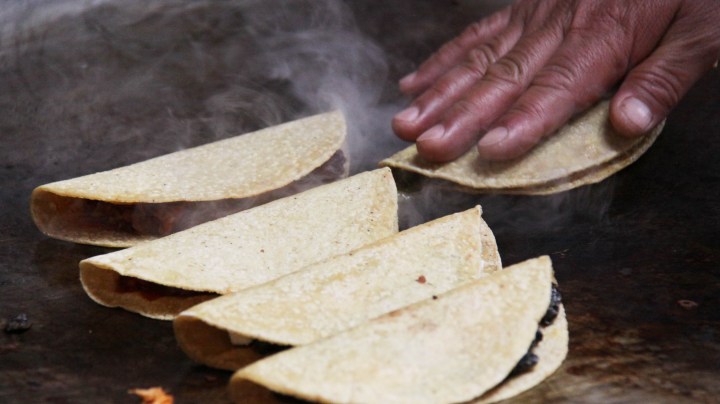Here’s How Chicago’s Latino Food Vendors Came Together to Ensure Their Livelihood

Photo by Christopher René Bautista Sánchez / EyeEm
After years of being criminalized for trying to make an honest living selling food on the streets, a group of Mexican-American vendors have taken the last step to setting up their businesses by the book. The city of Chicago only legalized the vending industry in 2015, but with the regularization of the industry, came plenty of growing pains.
Initially, the city charged food vendors a cost-prohibitive $350 for a two-year business license. The city also required all vendors to use a shared kitchen to prepare their food – meaning they could no longer even cut fruit from their cart. But in order to work at a shared kitchen, vendors had to pay the owners of the space to use their facilities and remunerate the city $75 for a short-term shared-kitchen-user business license or $330 for a two-year license. With these excessive rules in place, only five businesses had the proper food cart licensed by early 2017, according to the Chicago Tribune. After the Street Vendors Association of Chicago (SVAC) lobbied, the city completely overhauled its street vending permit system, which went into effect July 1. It lowered two-year street vending licenses from $350 to $100 and it eliminated the shared-kitchen-user business license.
While this made it easier for more street vendors to sell food the city-approved way, it didn’t change that for many vendedores ambulantes, the shared kitchen spaces that exist in Chicago are out of reach – both in terms of cost and distance. As a matter of fact, near Little Village – the neighborhood where many SVAC members live and hope to work out of – there’s few shared kitchen spaces, according to the University of Chicago’s Institute for Justice. Vendors can’t even use all of these shared kitchen spaces. This meant that to do things “properly,” they’d have to travel across town to use costly kitchens with limited slots.
Instead, the SVAC – which sought to become a non-profit organization – opted to team up with the Institute for Justice on Entrepreneurship at UC Law School p to start its own shared kitchen. According to the Chicago Tribune, vendors pooled their money together to start the kitchen in North Lawndale. The kitchen opened in June.
“Until now, traditional street vendors had to take great risks to sell delicious food to hungry customers,” said Beth Kregor, director of the Institute for Justice Clinic on Entrepreneurship. “You should not have to face massive fines or jail time in order to sell the kinds of food that people buy every day on streets across America. This group of vendors has worked for years, first to change the law, and then to build the infrastructure they needed to comply with the law. They are building a better, safer and more delicious Chicago.”